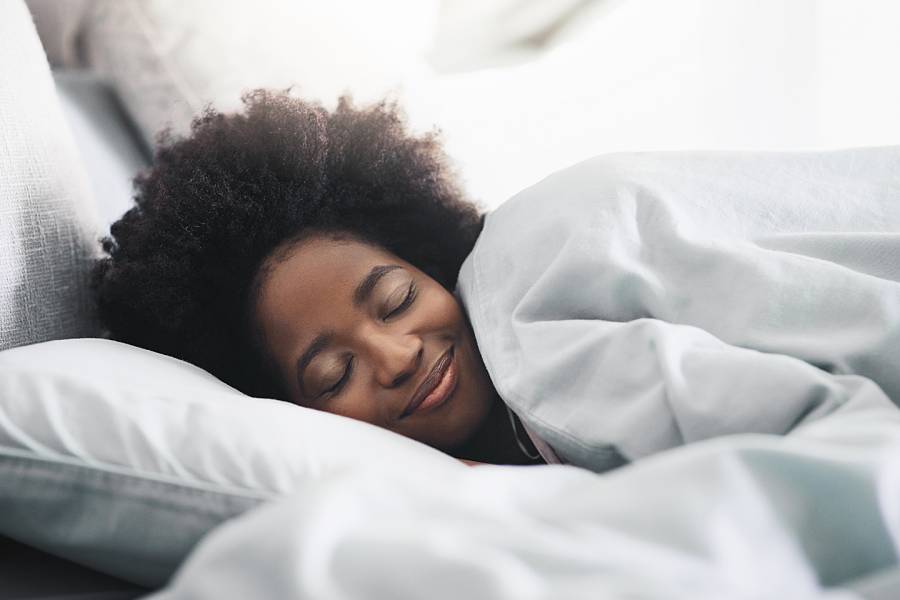This is the third in a series of stories about how you can use the myStrength wellness portal and app to enhance your emotional well-being.
Sleep! It's the thing we often want more of and can't seem to get enough of. There are many reasons why that magical condition can evade us, including poor sleep habits, personal obligations, work hours, or medical issues. Whether it's the occasional sleepless night or a chronic issue, being unable to catch some zzzs has consequences that can disrupt multiple areas of life.
When we don't get enough sleep, our physical and emotional health can take a hit. We may notice that we are more irritable and reactive. We may find that we are moodier and that patience is in short supply. Energy and motivation can take a nosedive, making it more difficult to be productive, focused, and present in all the areas of life that call for our attention. Additionally, not getting enough sleep increases the risk of health issues such as high blood pressure, heart attack, weight gain, and diabetes.
Sleep hygiene involves developing habits that help us sleep well on a regular basis. Improving it is a great way to work toward not only increasing the hours of sleep but also enhancing its quality.
A few strategies to try:
Keep the same bedtime routine. Humans are creatures of habit, so your body will start to anticipate when it is time to start winding down for bed.
Cultivate a calming environment. Dim the lights an hour before bed, and keep your space cool, calm, and cozy. Sleep in something comfortable.
Disconnect from electronics and avoid screen time. Instead of a TV show or one last peek at social media before bed, try a book or a guided meditation.
If background noise is helpful, use a white noise machine or nature sounds instead of the television.
Keep your feet uncovered if you get too warm.
Drink a warm decaffeinated beverage before bed.
If you can't fall asleep, get out of bed and do a quiet activity. Go back to bed when you start to feel sleepy.
When you wake up in the morning, get out of bed. Resist the urge to hit the snooze button. While it feels good in the moment, you'll only feel drowsier later on.
Try not to worry or watch the clock during the night. Remind yourself that your problems will be OK, and avoid negative thinking.
The basics of good sleep hygiene include keeping boundaries around how many hours you are getting and being consistent with the changes you are making so that they become a habit. Make getting seven to nine hours of sleep a priority, and don't dismiss the value of it. View the behavior changes that you are making as important. Your mind, body, and spirit will thank you, and it's likely that you won't be the only person who notices the difference.
Johns Hopkins employees and their family members interested in learning more skills to help improve the quality and quantity of their sleep may download the myStrength app, available in iTunes or Google Play with the access code JHU or JHHS, depending on your employer. This app has a module devoted to sleep hygiene that provides an online skills program and activities that you can do at your own pace. The module can also be accessed online at mystrength.com.
For guidance on getting started with some of the techniques outlined above, Johns Hopkins employees and their family members also have free 24/7 access to confidential counseling and referral services through mySupport by calling 443-997-7000.
Alyssa Toran is a mySupport employee assistance clinician.
Posted in Health+Well-Being
Tagged hr newswire










